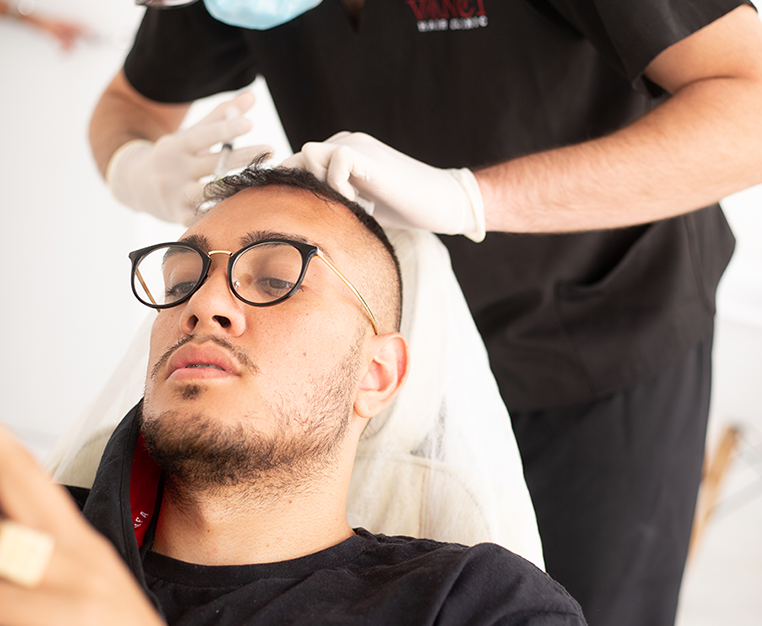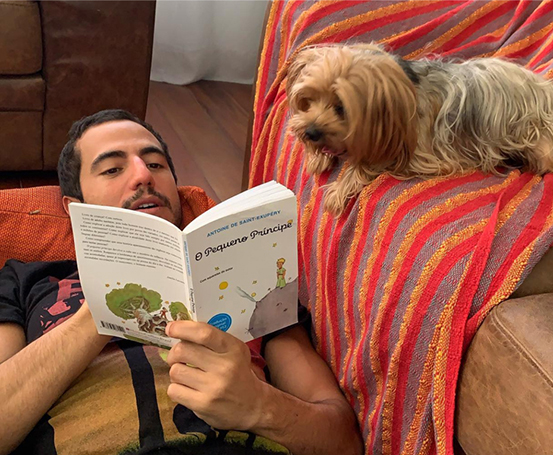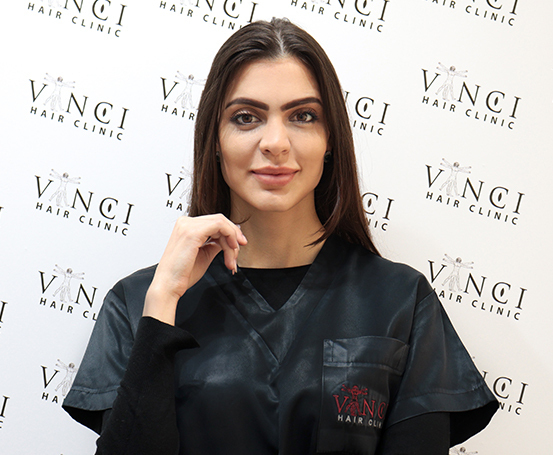A lot of things have happened in the past three years, including the emergence of new social media trends and, of course, the pandemic which has stressed out the whole world. The disease had us checking the news every single hour for updates. Things are slowly getting back to normal, but there are still consequences for those who contracted the virus.
Considering that one of the factors causing hair loss is stress, no one should be surprised that there is a link between hair fall and Covid-19. Dr Robert Finney, a board-certified cosmetic dermatologist, says that “there’s a form of hair loss called telogen effluvium, which is often referred to as ‘stress-induced’ and can be triggered from many things including childbirth, illness, medication, or major life stressor.”
Can COVID-19 Really Cause Hair Loss?
To answer this question, we have to first understand the hair loss process and how it happens. Our hair goes through four main phases:
- Anagen – the growing phase (lasts between three and seven years)
- Catagen – the transition phase (lasts about ten days)
- Telogen – the resting phase (lasts roughly three months)
- Exogen – the shedding phase (lasts between two and five months)
Nearly 90% of hair is in the active phase where follicles keep growing new strands, and less than 15% of it is in the resting phase. Stress and hormonal changes can cause a higher percentage of hair to pass into the telogen phase. This means that more hair than usual is resting or falling out, leaving a smaller percentage in the growing phase. This results in a condition known as telogen effluvium (TE).
Bridgette Hill, a certified trichologist, states that “the impact of psychological stressors trigger an abundance of epinephrine and cortisol, and these hormones can contribute to COVID-related hair loss,” she says. In these circumstances, our body creates a pro-inflammatory state that damages the tissue and might cause TE.
Using Spironolactone for Hair Loss
The recommended medications for hair loss depend on your health conditions, so if you want to cure this hair loss with medication, get medical advice. You might be prescribed spironolactone, as this is something that reduces the production of androgens such as testosterone and other male-related hormones. High levels of androgens are responsible for causing a type of hair loss known as androgenic alopecia. Studies have shown that using spironolactone reduces the levels of androgens and even promotes hair growth.
Using Minoxidil and Finasteride for Hair Loss
Minoxidil and finasteride are more commonly used in the hair restoration industry to help recover from hair loss. Minoxidil is also known by the brand name, Rogaine. Dr Finney states that “the best over-the-counter treatment is topical minoxidil.” The treatment is applied directly to your scalp.
Finasteride is another topical treatment that aims to minimise the production of dihydrotestosterone (DHT) which is produced from inactive testosterone hormones. This by-product of testosterone shrinks the hair follicles. Both minoxidil and finasteride combat these effects but your hair loss might resume when you stop taking them.
Using Platelet-rich Plasma (PRP) Injections for Hair Loss
Dr Finney states that “PRP is definitely a great treatment option. The growth factors contained in our platelets are effective at preventing hair from transitioning to a resting phase and at telling those that did so to wake back up.” The treatment doesn’t have many risks since the blood is extracted from the client’s body.
PRP is a hair loss treatment that relies on the regenerative abilities of our own body. It’s also used in sports where it helps to repair damaged tissue. It is thought that it can also repair damaged hair follicles. The blood is drawn from your body and platelets are separated out and then injected into the scalp areas that need growth.
Lifestyle Changes to Manage Hair Loss
The basics for good hair health start with a proper washing routine to maintain a clean scalp and hair free of build-up and dandruff. “Healthy hair starts at the healthy scalp. We want to make sure that we’re neutralising the pH levels and removing sebum as well as any other pollutants,” says Sarah Mardis, another hair expert.
It’s important to select good shampoos and other haircare products. For instance, you should avoid using dry shampoos if you have oily skin. Dry shampoos keep the dead skin cells and oils attached, and this creates an ideal space for microorganisms to cause infections in the hair follicles. Consult with a dermatologist before choosing and pay attention to your diet, since a healthier body leads to healthier hair as well.
Final Thoughts
The pandemic has put the whole world in motion, and its lingering effects can have an impact on our hair health and other parts of the body. The virus can cause hair loss indirectly by increasing your stress levels, leading to telogen effluvium.
Medications like minoxidil can help treat this hair loss but other changes to your daily routine can help too. Eating healthier and choosing haircare products that are suitable for your hair type can help combat hair loss. However, if hair loss persists for longer than expected, consider talking with a hair expert. Vinci Hair Clinic is offering a free consultation to all its new clients. Book your appointment today!



